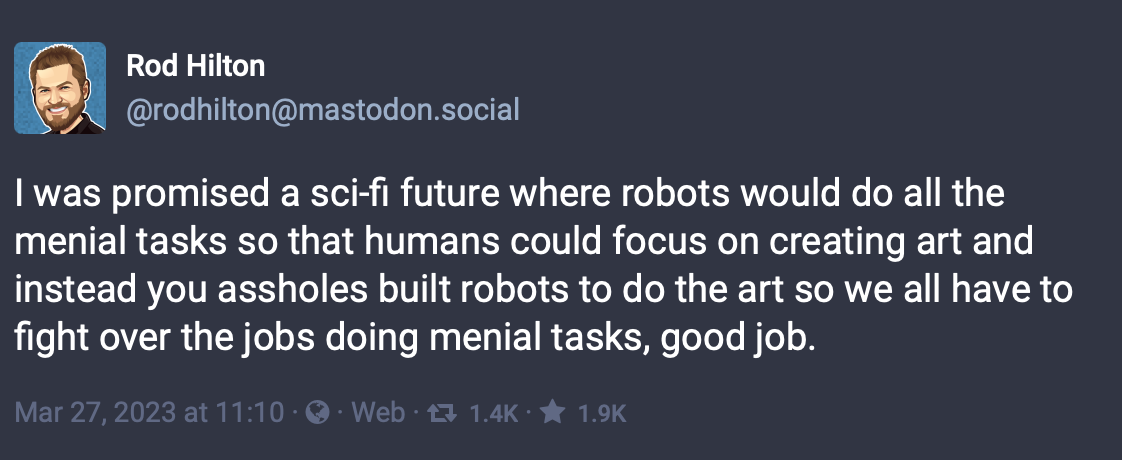I enjoyed Bill Gates’s post The Age of AI has begun, right until he got to this bit:
When productivity goes up, society benefits because people are freed up to do other things, at work and at home.
The idea that increased productivity gives people more time to do other things that are more useful and fulfilling is a thoroughly-debunked theory. First, there’s the question of what we even mean by “productivity”, especially in the context of the Productivity Paradox:
The productivity paradox (also the Solow computer paradox) is the peculiar observation made in business process analysis that, as more investment is made in information technology, worker productivity may go down instead of up.
But even if we can get to a point where we agree on how to define the word, we have known for a long time that the only thing that increased productivity does is create more work:
The usual first response to encountering the Productivity Paradox is disbelief: “If I have to write a few emails so that I don’t have to use a carrier pigeon, sign me up!”
But in a bureaucracy, the story of those few emails usually doesn’t end there. So, you send your few emails, and then you soon get email replies and comments. Now, you have to write more emails in reply to those emails, which are then sent up the hierarchy and to a chain of full-time reviewers, who each make a comment to show that they are useful.
So when we get more productive the time we “save” on one type of task just gets filled with a different, not necessarily more valuable task. But what about “at home”, you ask? Nope. We have also known for a very long time that instead of giving us more time for hobbies and hanging out, technology is killing leisure time:
The very tools that were supposed to liberate us have bound us to our work (and schools) in ways that were inconceivable just a few years ago. Almost all of us have less leisure time than ever. We work harder, take fewer vacations for shorter periods of time, report more stress than almost any other demographic group and find the boundaries between work and play increasingly blurred. Computing and communications technologies are destroying the idea of privacy and leisure.
So anyway, Bill Gates wrote a pretty insightful take on AI, in my opinion. But the idea that generative AI will free up our time to do more valuable and fun things is not backed up by history at all. Or to put it slightly differently:
